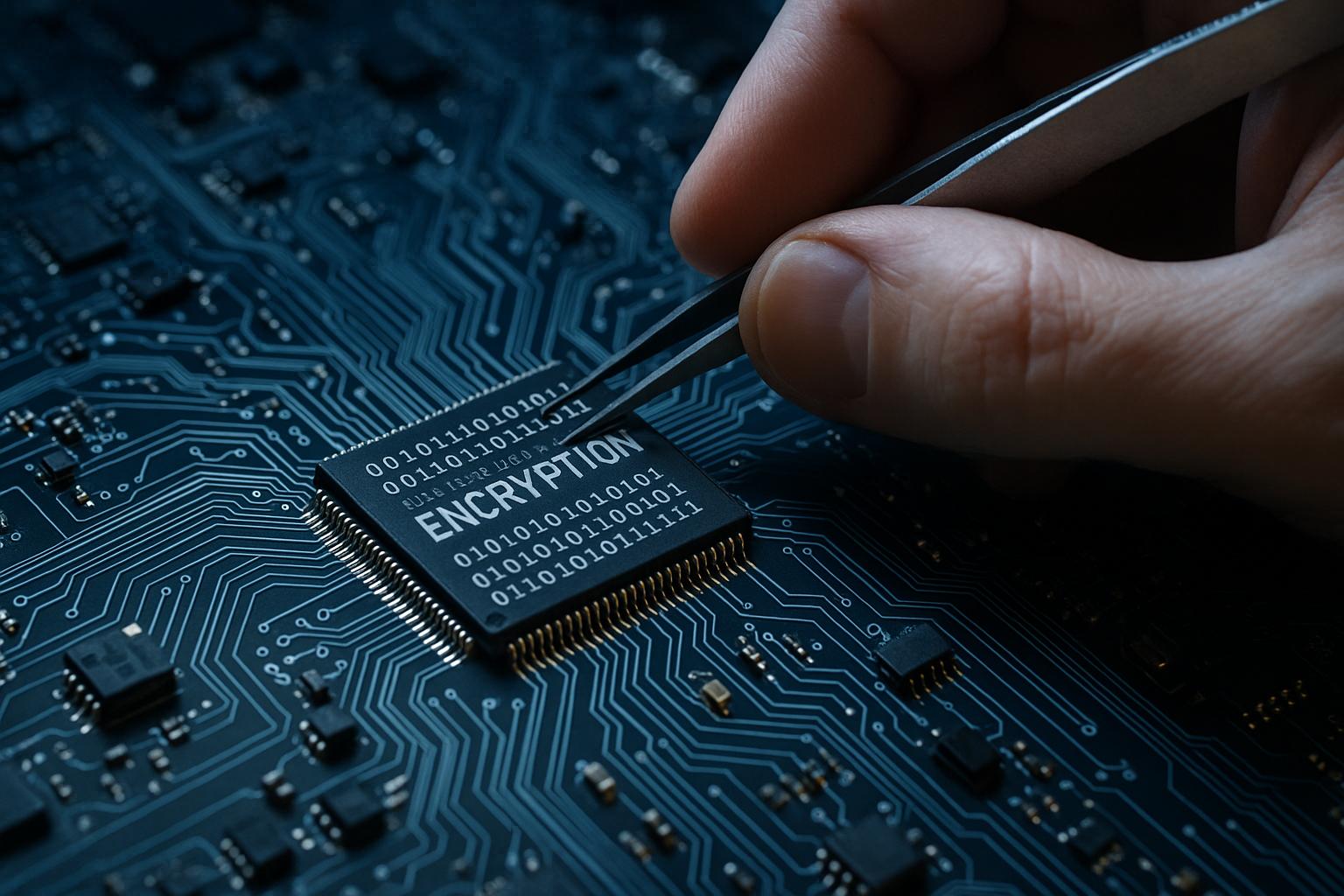The global hardware encryption technology market is on a robust growth trajectory, driven by escalating demand for secure data protection amid rising cyber threats and stringent regulatory requirements. Current market projections indicate significant expansion, though the extent of growth varies widely among different analyses. A commonly referenced forecast estimates the market value to reach approximately USD 3.2 billion by 2031, growing at a compound annual growth rate (CAGR) of around 10.5% from 2024. This growth is spurred by increased industrial adoption and continuous advancements in information technology and telecommunications sectors, where hardware encryption solutions are critical to safeguarding sensitive information.
Hardware encryption technology offers notable advantages over software-based security measures, including faster processing speeds, enhanced reliability, and stronger resilience against cyberattacks. The rising utilisation of encrypted storage devices such as solid-state drives (SSDs) and self-encrypting drives is notable across key sectors like banking, healthcare, and defence. Innovations in encryption chip design, key management systems, and integration with Internet of Things (IoT) and cloud infrastructures further bolster the market’s expansion, enabling end-to-end data protection with reduced latency and computational burden on host systems.
Different market intelligence reports present varying valuations and growth rates for the hardware encryption market, often reflecting diverse methodological approaches and scope. For instance, some sources project the market to reach the hundreds of billions, citing figures like USD 855 billion by 2034, or even several trillion dollars by 2031, with CAGRs ranging as high as 18-27%. These discrepancies likely arise from including broader hardware encryption applications, segments such as Field Programmable Gate Arrays (FPGA), commercial and consumer electronics sectors, or differing regional market definitions and emphasis.
Regionally, Asia-Pacific stands out as the fastest-growing market, driven by rapid industrialisation, infrastructure growth, and expanding middle-class demographics, particularly in China, India, and Japan. North America currently dominates the market with the largest share, attributed to its advanced technological infrastructure, substantial investments, and early adoption of encryption technologies, especially in the United States. Europe also posts notable growth, bolstered by stringent regulations and strong industrial bases in countries like Germany, the UK, and France. Emerging markets in Latin America, the Middle East, and Africa show moderate but accelerating adoption as infrastructure and industrial activities expand.
Key drivers underpinning this dynamic market include ongoing technological innovations that enhance encryption efficiency and lower costs, increasing industry-specific applications spanning automotive, healthcare, telecommunications, manufacturing, and consumer electronics, along with supportive government policies and infrastructure development initiatives. Public-private partnerships and national digital transformation agendas, including Industry 4.0 and smart city programs, create conducive environments for rapid market growth. Meanwhile, significant investment inflows—from venture capital to mergers and acquisitions—are fueling research and development efforts focused on next-generation, scalable, and environmentally sustainable hardware encryption solutions.
Nonetheless, challenges persist. The market faces complexities due to tight regulatory frameworks, high upfront capital expenditures, market fragmentation especially in emerging economies, and geopolitical risks in certain regions. Additionally, factors such as premium pricing, supply-chain constraints for advanced cryptographic components, and export-control restrictions can temper growth momentum. The looming threat of quantum computing has accelerated the transition from traditional symmetric encryption algorithms towards quantum-resistant methods, further influencing technology development and deployment strategies.
Leading industry players shaping this competitive landscape include Thales Group, IBM, Symantec, McAfee, Gemalto, Microsoft, Hewlett Packard Enterprise, Dell Technologies, Trend Micro, Kaspersky Lab, and Fortinet, among others. These companies are focused on innovation, strategic alliances, and global market expansion to capture rising demand.
In summary, while estimates of market size vary, the consensus points to a rapidly expanding hardware encryption technology market propelled by critical security needs and technological progress. With evolving cyber threats and increasing digitalisation across global industries, hardware-based encryption solutions remain pivotal for ensuring data integrity and privacy, promising sustained growth well beyond the current forecasts.
📌 Reference Map:
- Paragraph 1 – [1] (OpenPR), [5] (IMARC Group)
- Paragraph 2 – [1] (OpenPR), [3] (Precedence Research)
- Paragraph 3 – [2] (KBV Research), [6] (SkyQuest Technology), [3] (Precedence Research)
- Paragraph 4 – [1] (OpenPR), [5] (IMARC Group), [2] (KBV Research)
- Paragraph 5 – [1] (OpenPR), [7] (Reanin), [4] (Mordor Intelligence)
- Paragraph 6 – [1] (OpenPR), [4] (Mordor Intelligence), [7] (Reanin)
- Paragraph 7 – [1] (OpenPR), [2] (KBV Research), [5] (IMARC Group)
Source: Noah Wire Services
